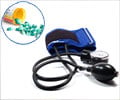Certain drugs may mitigate the risk of Parkinson’s disease by suppressing the expression of the α-synuclein gene.
Highlights
- Medicines prescribed for asthma and high blood pressure might increase the risk of Parkinson’s disease.
- The use of asthma medicine halves the risk of getting Parkinson´s, but one type of medicine against high blood pressure doubles the risk.
- The findings were given after analyzing more than 100 million prescriptions ordered over the last 11 years in Norway and indicates new treatment strategy for Parkinson’s.
"Our analysis of data from the whole Norwegian population has been decisive for the conclusion in this study," says Professor Trond Riise at IGS. He leads the registery study in Norway.
Asthma – Blood Pressure Drugs
The treatment of Parkinson´s was linked to prescriptions of asthma medicine and the medicine for high blood pressure. It enabled the researchers to see the connection between medicine use and illness.
The UiB-researchers were able to make these comparisons by using the prescription database. The Norwegian analysis was done after researchers at Harvard University found these effects of the medicines in animal tests and in experiments with brain cells in the lab. Their results showed that these different medicines had opposite effects on the risk of Parkinson´s.
To find out if these medicines had the same effect on humans, the researchers at Harvard University started to collaborate with the Norwegian research team, and their unique resource of having access to the unique and large Norwegian database, where all Norwegian prescriptions are registered.
Trond Riise underlines the fact that "Our discoveries may be the start of a totally new possible treatment for this serious disease. We expect that clinical studies will follow these discoveries."
Reference
- Shuchi Mittal et el.,β2-Adrenoreceptor is a regulator of the α-synuclein gene driving risk of Parkinson’s disease, Science (2017), http://dx.doi.org/10.1126/science.aaf3934.
Source-Medindia
















